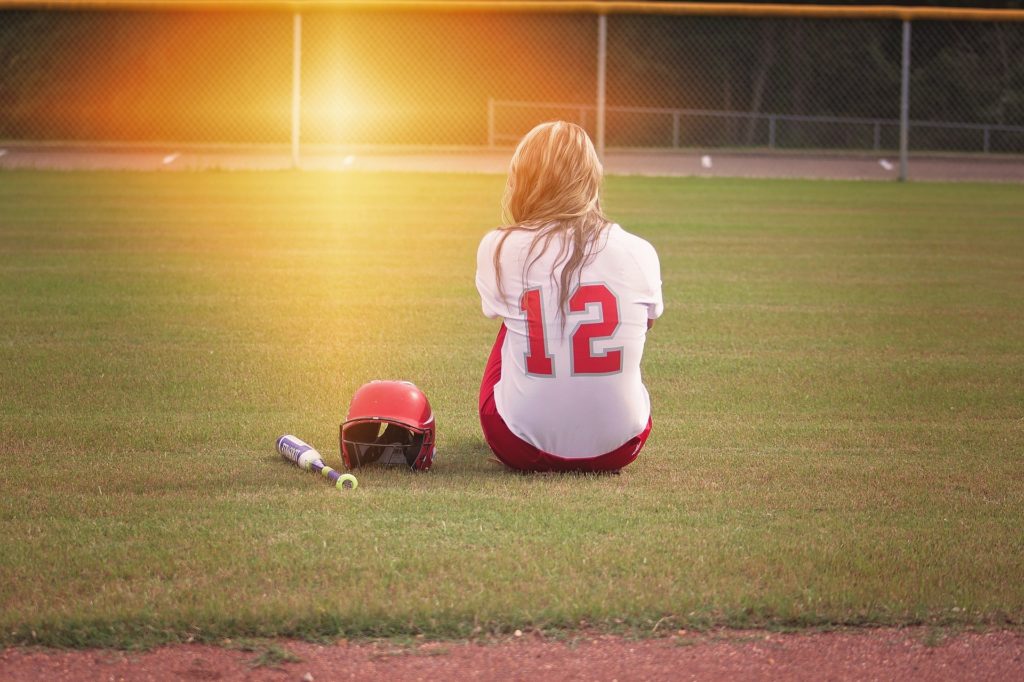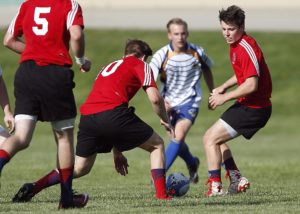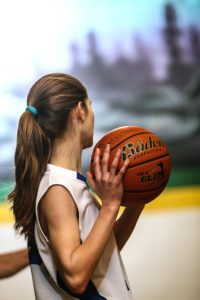- Calls to this hotline are currently being directed to Within Health, Fay or Eating Disorder Solutions
- Representatives are standing by 24/7 to help answer your questions
- All calls are confidential and HIPAA compliant
- There is no obligation or cost to call
- Eating Disorder Hope does not receive any commissions or fees dependent upon which provider you select
- Additional treatment providers are located on our directory or samhsa.gov
Teen Athletes & Anorexia: Concerns for Parents and Coaches

Teen athletes who are dealing with anorexia nervosa face considerable challenges with their physical and mental well-being.
Parents and coaches who are more involved with a teenage athlete can play an instrumental role in awareness and early interventions, particularly as many of the signs of an eating disorder can be easily overlooked or seen as part of dedication to a sport.
Athletes who play certain sports may be at an increased risk for developing an eating disorder, particularly endurance sports or sports that emphasize a certain body type. This might include dance, wrestling, distance running, diving, figure skating and gymnastics [1].
Recognizing Early Signs of Anorexia Nervosa
Part of what can make it difficult to recognize the early signs of anorexia in a teenage athlete is that many of symptoms may be justified as part of training for the sport itself. For example, an athlete who is over-exercising or following a rigid diet may attest to doing so as part of their athleticism and commitment to training.
Some of the factors that may increase a teenage athlete’s risk for anorexia include low self-esteem and/or poor body image, family history of eating disorders or chronic dieting, the experience of traumatic life events, history of physical and/or sexual abuse, and cultural/media pressures to be thin.
For parents and coaches of eating disorder sufferers, being aware of these early signs of anorexia nervosa can help identify the eating disorder and connect to intervention as soon as possible.
Teenagers who are potentially struggling with anorexia as an athlete may demonstrate some of the following signs and symptoms:
- Weight fluctuations
- Loss of menstrual cycle or irregular menses for females
- Frequent injuries or fractures
- Excessive exercise beyond that which is required for training
- Continuing to train or exercise even when injured, sick or hurt
- Rigid eating and/or restricting entire foods or food groups
- Decreased energy, coordination, concentration, and/or muscle function
- Ritualistic eating patterns
- Preoccupation with food and body image
- Increased isolation
- Mood swings and/or increased impatience
- High level of irritability or anxiety when unable to train or practice
- Frequent Weighing
- Preoccupation with achieving a lower weight for improved performance
Collaborative Approach For Anorexia Nervosa Treatment
Many of the signs of eating disorders in teen athletes can easily be overlooked, but it is important not to ignore these red flags that may indicate a severe issue is at hand.

Female teenage athletes who demonstrate some of these signs may also be at risk for the female athlete triad, which is defined as the combination of disordered eating, amenorrhea, and osteoporosis [2]. This can develop alongside anorexia nervosa and be devastating for a teenage female athlete, both physically and emotionally.
When coaches, parents, athletic trainers, physicians, etc., are able to work and collaborate together, there is a greater opportunity for awareness, prevention and early treatment for eating disorders, which can greatly improve the prognosis for a teenage athlete who may be suffering.
For a disease that is potentially life threatening, coaches and parents should continue to be informed and educated about the risks concerning anorexia nervosa among teenage athletes, as well as understand the potential signs and symptoms that may be exhibited.
Seeking Comprehensive Care for Eating Disorders in Teen Athletes
 Many teenage athletes with anorexia nervosa may be reluctant to seeking out help and care for their eating disorder, though professional treatment interventions are a necessary part of the recovery and healing process.
Many teenage athletes with anorexia nervosa may be reluctant to seeking out help and care for their eating disorder, though professional treatment interventions are a necessary part of the recovery and healing process.
As a coach or trainer, it may be helpful to have some eating disorder treatment referral resources readily available in the instance that a student athlete may need interventions.
For parents, it may be beneficial to locate an eating disorder specialist who works with athletes and understands some of the unique challenges your child may be facing with their own eating disorder recovery.
A teenage athlete facing anorexia may also be concerned that they will not be able to play their sport again.
Most athletes with eating disorders are in need of a help from a health care professional to ensure medical/psychiatric stabilization, to normalize food and eating behaviors, and to redefine goals related to performance, personal life, and school work.
Because of the complexities associated with anorexia in teenage athletes, it is important to have a collaborative support among coaches, parents, and other professionals to ensure the most effective course for treatment.
 About the Author: Crystal Karges, MS, RDN, IBCLC
About the Author: Crystal Karges, MS, RDN, IBCLC
Crystal is a Masters-level Registered Dietitian Nutritionist (RDN) with a specialty focus in eating disorders, maternal/child health and wellness, and intuitive eating. Combining clinical experience with a love of social media and writing,
As a Certified Intuitive Eating Counselor, Crystal has dedicated her career to helping others establish a healthy relationship with food and body through her work with EDH and nutrition private practice.
References:
[1]: National Eating Disorder Association, “Athletes and Eating Disorders: What Coaches, Trainers, Parents, and Teammates Need to Know” https://www.nationaleatingdisorders.org/athletes-and-eating-disorders Accessed 3 July 2017.[2]: Julie A. Hobart, M.D., et al. The Female Athlete Triad. Am Fam Physician. 2000 Jun 1;61(11):3357-3364
[3]: Jorunn Sundgot-Borgen, PhD, et al. Prevalence of Eating Disorders in Elite Athletes is Higher than in the General Population. Clin J Sport Med Volume 14, Number 1, January 2004
The opinions and views of our guest contributors are shared to provide a broad perspective of eating disorders. These are not necessarily the views of Eating Disorder Hope, but an effort to offer discussion of various issues by different concerned individuals.
We at Eating Disorder Hope understand that eating disorders result from a combination of environmental and genetic factors. If you or a loved one are suffering from an eating disorder, please know that there is hope for you, and seek immediate professional help.
Published on August 5, 2017.
Reviewed By: Jacquelyn Ekern, MS, LPC on August 5, 2017.
Published on EatingDisorderHope.com

The EatingDisorderHope.com editorial team comprises experienced writers, editors, and medical reviewers specializing in eating disorders, treatment, and mental and behavioral health.

